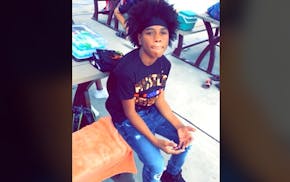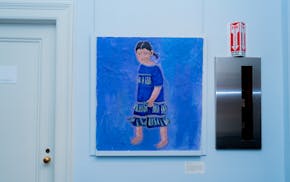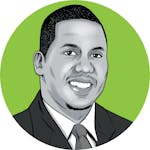I remember the first time I met someone my age who told me they do not speak to their parents anymore. I was in my 20s, and I thought it was strange. I assumed then that their parents deserved more grace and the opportunity for reconciliation.
As I got older, I met more folks who'd made the same choice. They no longer attend family gatherings. The calls with mom and dad — and sometimes grandma and grandpa — are now rare. They do not follow one another on social media, either. This estrangement often centered on decisions by children who were no longer children but adults who had come to resent and reject the bigoted beliefs and toxic perspectives knitted into their respective upbringings, and they had subsequently decided to act on those philosophical differences.
They also did not want their children to inherit their family's hate, so they started a life that no longer included them.
They decided they would have more peace without a relationship with their parents or grandparents or other close relatives. Today, I no longer see the distance as strange. I understand that those who raise us sometimes lose space in our lives as we evolve.
That's the predicament the people of Lino Lakes will face in the weeks ahead amid calls to censure and oust City Council Member Chris Lyden, who fired off an email condoning Islamophobic rhetoric in the wake of a proposal to build a "Muslim-friendly" housing complex that would include a mosque. The Council on American-Islamic Relations' Minnesota chapter has called on him to resign.
Those who support Lyden, who applauded an email that denied the existence of Islamophobia and called Islam "our declared enemy," must consider not just their views today but also the questions future generations in Lino Lakes will pose as they're held accountable for their handling of this moment. These are the choices that can break family trees years later.
If Lyden, who campaigned on a promise of "always choose kindness," remains on the council, the children in that town, as they grow older, may one day ask why members of their community openly and publicly backed him and his support of prejudice. That's the danger of hatred. It covers everything it touches. The divisive acts of individuals can cause stains on a city's name that the next generation could be asked to clean. And that's unfair.
But the Lino Lakes City Council has taken action and will vote on a possible censure of Lyden on Sept. 23 after calling his response to that email inappropriate and voicing concern that it "reflects poorly on the City."
"The response neither reflects the views of the City or the views of the City Council," the council's proposed resolution states. "The Council disavows the email response in its entirety."
But that's not enough. Per Minnesota statute, a community "may also provide for the recall of any elective municipal officer and for removal of the officer by vote of the electors of such city."
Lyden should resign before the process reaches that point. And if he refuses to leave that way, the city of Lino Lakes must decide what it wants to be and how its residents will be remembered in this moment.
There is an opportunity to prove that the vocal folks who've backed this resentment toward the Muslim community are not the sole voice in Lino Lakes. There is a chance to take a stance here.
A council member is elected to speak on behalf of their constituents. Their decisions are not isolated events. They cannot say that they only represent themselves when they hold public office. That's why Lyden's response to that email was so impactful.
He said what, unfortunately, some others in that community feel about a proposal to build a housing complex and a mosque. And now his peers on the council — and those who elected him — have to make a consequential choice.
The lie about time is that it's ours alone. But it's always borrowed from those who came before us and passed down to those who will follow. That principle should govern our choices and decisions with the understanding that the next generation will either benefit from them — or suffer as they're tasked with unraveling their aftermath.
Those people I know, who do not speak to their mothers and fathers or other close relatives, found solace, over time, in the breakup. They did not know how to participate in a relationship that became damaging and detrimental. The disagreements and divergent views within their families prompted a divide. Yet, even with the separation, they're still affected. Because wounds are sometimes too deep to fully heal.
Their circumstances also demonstrate the unavoidable truth for any family or city or community that's forced to examine itself amid controversy: A sullied name is difficult to escape.

Medcalf: This summer, let's all be more vigilant about our children — and everyone else's

Medcalf: Mia program provides safe space for young people to create

Medcalf: George Floyd's daughter, now 11, on life without her dad: 'It's hard'

